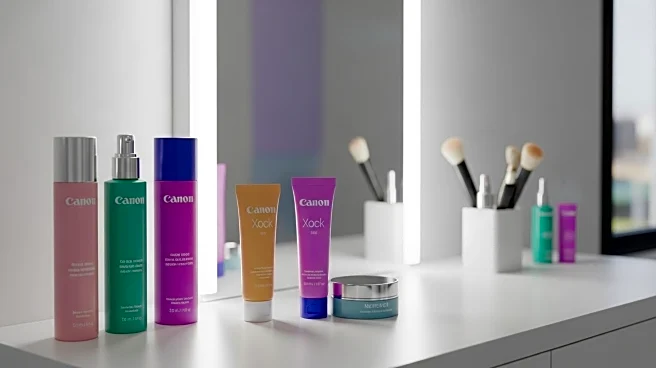What is the story about?
What's Happening?
Gen-Z beauty brands such as Bubble, Starface, and Byoma have gained popularity by leveraging TikTok-native aesthetics and engaging closely with their audience. These brands, characterized by their playful packaging and innovative marketing strategies, have successfully captured the attention of young consumers. However, as the oldest members of Gen-Z approach their 30s, there is a shift in consumer preferences towards products that offer proven results rather than gimmicks. This evolution in consumer expectations presents a challenge for these brands, which must now balance their youthful appeal with the need for credibility and effectiveness.
Why It's Important?
The shift in consumer preferences among Gen-Z has significant implications for the beauty industry. Brands that fail to adapt may lose market share to competitors that offer more mature and effective products. This transition highlights the importance of product performance and strategic marketing in maintaining relevance. As Gen-Z consumers become more discerning, brands must innovate to meet their evolving needs, potentially leading to changes in product formulations, packaging, and marketing strategies. The ability to successfully navigate this transition could determine the long-term viability of these brands in the competitive beauty market.
What's Next?
To address these challenges, some Gen-Z beauty brands are expanding their product lines and exploring new retail channels. Byoma, for example, has moved into more premium retail spaces, using retailers as a marketing engine to reach a broader audience. Brands are also focusing on creating replenishable products that offer unique results at competitive price points. The future success of these brands will depend on their ability to offer products that not only appeal to the youthful aesthetic but also deliver tangible benefits, ensuring continued consumer loyalty.
Beyond the Headlines
The evolution of Gen-Z beauty brands reflects broader trends in consumer behavior, where authenticity and effectiveness are increasingly valued over novelty. This shift may influence other industries as well, prompting companies to reassess their strategies to align with changing consumer expectations. The emphasis on product performance and credibility could lead to a reevaluation of marketing practices across sectors, highlighting the importance of transparency and consumer engagement.















